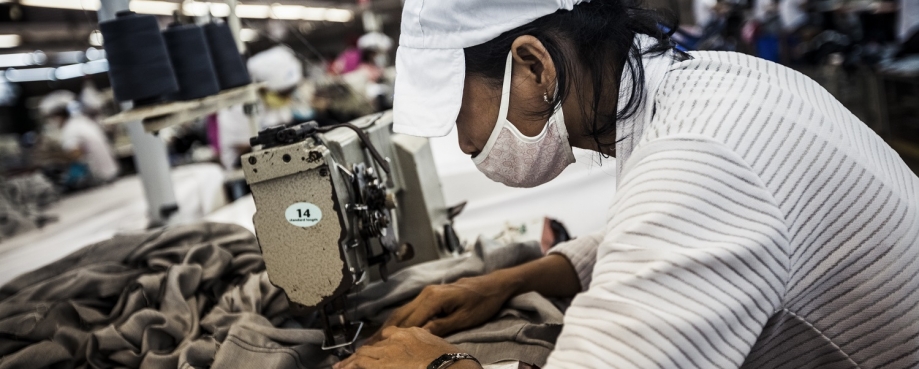
We express grave concerns over the news that Sir Phillip Green’s Arcadia fashion group is to pay its suppliers 2% less on existing and future orders.
ETI’s Executive Director, Peter McAllister said that the reported cuts, particularly to orders that have already been agreed, are “appalling” and “totally unacceptable within responsible business practice”.
He further said: “Unfortunately, Arcadia has ‘form’ for this type of action. They threatened exactly the same two years ago in August 2015.
“Yet evidence shows that workers and the most vulnerable groups in Arcadia’s supply chain will ultimately bear the impact of this decision to reduce prices paid to suppliers.
“These kinds of arbitrarily imposed terms represent exactly the type of poor purchasing practices fashion brands need to change.”
“Suppliers operate on incredibly tight margins. Virtually the only costs they will be able to cut are to wages or to essentials such as health and safety provision.”
Supplier survey
Last year, ETI surveyed over 1,000 suppliers in conjunction with the International Labour Organisation. The survey confirmed that tight price negotiations have a definite impact on suppliers’ ability to pay appropriate wages:
- 29% of suppliers said that buyers’ purchasing practices were likely to result in their workers having to accept wages below the cost of living.
- 40% of suppliers said that they were likely to subcontract orders to other companies because of low order prices.
“Unauthorised subcontracting in particular,” Peter McAllister said, “is a real danger signal for poor practice”.
Peter McAllister also explained that at the heart of the survey sits the idea of developing fair, transparent, two-way relationships with suppliers.
“We and the ILO went straight to the horse’s mouth and spoke directly to suppliers.
“We asked suppliers to speak up. We wanted to ensure clarity over any contractual constraints they face in ensuring workers get a good deal."
Collaboration with suppliers
In a difficult business environment, there will be times when companies have to look at efficiency savings. But this should be done in collaboration with suppliers, not be diktat, Peter McAllister advised.
"Treating suppliers fairly underpins sustainable business for all," he said.
It is why ETI has published a Guide to Buying Responsibly.
It is also why ETI recommends that Arcadia’s suppliers submit a Better Buying review, this is a new online platform that allows suppliers to anonymously rank the buying practices of brands and retailers.
The above image is for illustrative purposes only and does not refer to a factory supplying Arcadia.
